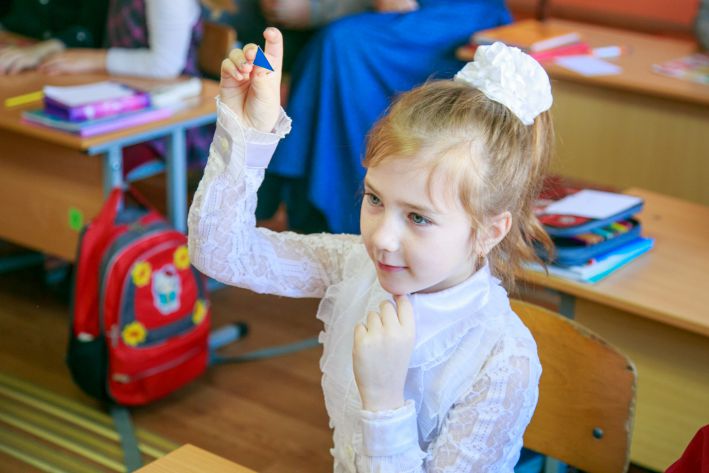Adaptation to school is the process of physical and psychological adaptation of a child to social conditions and the transition to systematic school education. The duration of the period on average takes from 3 to 6 months.
Basically, when we hear about adaptation, we imagine first-graders, but adaptation is also necessary for children who move from junior to senior classes, change schools, or have a new teacher or class teacher, says Evgeniya Goncharova , an expert of the online publication Belnovosti - a practicing psychologist, a teacher of psychology, and a member of the European and St. Petersburg Organization of Transactional Analysis.
Therefore, we will consider several recommendations that will help a child of any age gradually adapt to school and the various changes associated with educational activities.
It is important to know that adaptation has several basic forms. By distinguishing them, you will be able to better understand what is currently happening with your child and find a way to help him solve any problems.
There are the following forms of children's adaptation to school.

1. Organizational
Every educational institution has its own schedule and rules that a child needs to adapt to. This is probably the most difficult form of adaptation, because not all children can withstand the pace and workload that school dictates.
And many may become very tired, not keep up with their peers, get bad grades, etc. Because of this, the level of anxiety may increase along with the reluctance to attend classes.
2. Educational and motivational
The desire to learn, master new skills and gain knowledge are the main drivers of educational activity.
However, this process is very fragile, because there are many factors that can influence a child's desire to study, and sometimes even the most seemingly insignificant detail can completely suppress motivation and love for learning.
3. Psychological
Psychological comfort, the normal emotional state of the child in the school environment, the perception of oneself and one’s social role are important factors that influence adaptation to school.
4. Social
The child's behavior and role formation in the environment in which he spends most of his life, the acquisition of new contacts, the development of his position and the formation of his character - all this also influences adaptation.
Let's not forget that each child will get used to and adapt individually at their own comfortable pace. It is necessary not to lose sight of and pay attention to each adaptation form so that the child feels calm. Many children may remain silent about what is really happening at school, for example, about relationships in the classroom, about difficulties in understanding certain subjects, etc.
However, let us not remove responsibility from parents for what happens at home, since the environment and safe psychological climate in the family is the most important aspect in the formation of the child’s personality, which influences his adaptation and further development.
It is important to remember that the child must want to return home! Therefore, children need attention and help from adults.

So how can you help your child adapt to the school environment?
1. Trust
It is very important to learn how to build a trusting relationship with your child. Create a safe space for him at home, show that he can and should share important things with you without judging and devaluing his feelings.
Instill family values in him, respect his personal boundaries and the boundaries of others. Explain and talk about how to solve problems or cope with various situations that may happen to him or have already happened during the educational process.
It is also necessary to explain to the child who he can turn to for help if something happens or, for example, if he does not understand some topic.
And the most important thing is to explain to the child that studying is necessary for his personal development and that grades, although important, do not determine whether he is good or bad.
2. Daily routine
Children of any school age need a daily routine. Explain to your child that routine and discipline will help them cope with the stress of school more easily.
By following the regime, the child will feel good both psychologically and physically. And this means that his performance, well-being, mood will be better, and adaptation will be easier.
3. Me and them
The child needs to be prepared for the fact that at school he will meet new people of different ages and statuses. Explain to him how to behave with older people and peers. Remind him that he cannot be rude and must treat others with respect.
Teach your child not to be afraid to be themselves and make mistakes, tell them that maybe not everyone will like them and that this is normal. Parents need to tell their children more often that they should not compare themselves with others, but focus on their strengths. Tell your child how to make friends and what is valued in friendships.
4. Independence
Teach your child to be independent. Offer him to pack his school bag or do his homework himself. This will partially help to instill in the child responsibility for his life and for some processes in it.
5. Employment
In addition to schoolwork, the child needs to do something that brings him pleasure. Pay attention to your child's talents and characteristics, his hobbies. Find him a suitable club where he could develop his skills and abilities, thus this will make him not only an interesting person among his peers, but also help him relieve accumulated stress and reduce the level of anxiety.
It would be good if you introduced a small tradition in the family - to tell each evening, for example, at dinner, about how each family member's day went. You can choose any format: for example, what made you happy and upset, with feedback from each person sitting at the table. The main thing is to create an atmosphere without reproach and condemnation.
The main rule of adaptation to school is to create safety at home. A schoolchild must understand: no matter what happens to him, his home is his fortress, where he will always be supported and understood!








